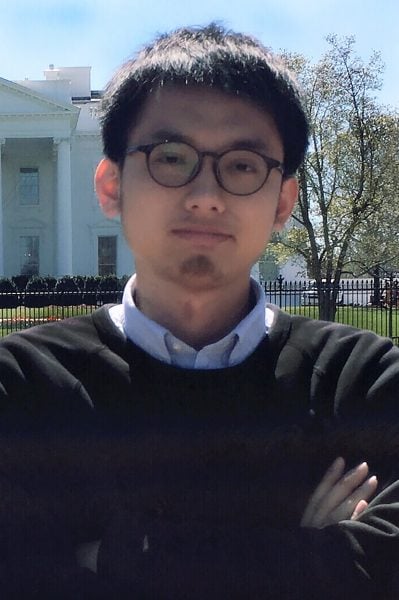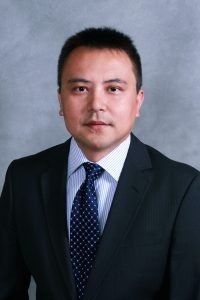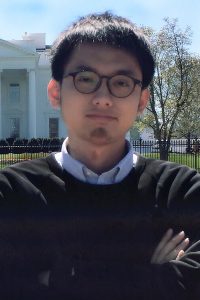
Dr. Junqiao Qiu, Computer Science, has been awarded a two-year, $174,797 NSF pre-CAREER grant, which supports research independence among early-career academicians
The project is titled, “CRII: SHF: GPU-accelerated FSM computations with advanced speculation.”
Dr. Qiu’s research focuses on parallel computing, programming systems, and compiler optimization.
He is a member of the Scalable Architectures and Systems research group of the Institute of Computing and Cybersystems (ICC).
Abstract
Finite State Machine (FSM)-based computations have played critical roles in a variety of important applications, ranging from cyber security and data analytics to software engineering and hardware design. Due to the growing data volumes and limitations on computer processing power, nowadays FSM efficiency is greatly constrained, and a new dimension of efficiency optimization is desired. This project proposes a novel framework to enhance the computing efficiency of FSM-based computations on GPUs. The combination of GPU acceleration and speculative parallelization developed in the proposed framework shows promise for boosting performance of FSM computations and presents the potential to optimize even more general non-FSM computations.
This research investigates how to build up the synergy between highly-parallel GPU architectures and FSM computations. The key idea is exploring multiple dimensions of parallelism for increasing compute utilization as well as reducing data-movement overheads. Additionally, this research designs and integrates advanced speculative parallelization into FSM computations. The advanced speculative parallelization not only enables more effective predictors on different FSMs, it also provides efficient speculative-thread scheduling. All these optimizations will be built into a framework that further explores the trade-offs between different objectives and automatically optimizes application configurations based on the given objectives. Finally, this research seeks to enlarge the applicability of the envisioned results, and it brings the preliminary exploration about a new dimension of computing efficiency for irregular computations as well as applications associated with speculative parallelization.

Dr. Qiu’s lab has openings (RA/TA support) for self-motivated students who are interested in doing system research. For more information, please email Dr. Qiu at junqiaoq@mtu.edu.
The Michigan Tech College of Computing welcomed six new faculty members this fall to the Departments of Applied Computing and Computer Science.
College off Computing Dean Adrienne Minerick says the new hires reflect the fast growth of the new College, which was launched July 1, 2019.
“We are thrilled to welcome these six talented new faculty members,” Minerick says. “Even amid the challenges we are all facing, our proactive recruitment and retention activities are making a difference.”

Assistant Professor Briana Bettin, Computer Science, has a Ph.D. in computer science from Michigan Tech. She is also an affiliated assistant professor for the Cognitive and Learning Sciences department. Bettin’s research interests include user experience; human factors; human-computer interactions; mental models; information representation; rural digital literacy; education, engagement, and retention; and digital anthropology. Bettin is a member of the ICC’s Computing Education Center.

Assistant Professor Sidike Paheding, Applied Computing, has a Ph.D. in electrical engineering from University of Dayton, Ohio. Prior to joining Michigan Tech Paheding was a visiting assistant professor at Purdue University Northwest. His research interests include image/video processing, machine learning, deep learning, computer vision, and remote sensing. Paheding is a member of the ICC’s Center for Data Sciences.

Assistant Professor Junqiao Qiu, Computer Science, has a Ph.D. in computer science and engineering from University of California Riverside. His research focuses on parallel computing, programming systems, and compiler optimization. Qiu is a member of the ICC’s Center for Scalable Architectures and Systems.

Assistant Professor Ashraf Saleem, Applied Computing, has a Ph.D. in mechatronics engineering from DeMontfort University, UK. He comes to Michigan Tech from the electrical and computer engineering department at Sultan Qaboos University, where he served the mechatronics engineering program. Ashraf will be on campus starting in the spring 2021 semester.
Saleem’s research interests are in autonomous systems, vision-based unmanned vehicles, Artificial Intelligence, control of Piezoelectric actuator, and servo-pneumatic systems.

Assistant Professor Leo Ureel, Computer Science, has a Ph.D. in computer science from Michigan Tech. He has been teaching at the college level for 10 years, and has over 20 years of industry experience. Ureel is also coordinator of the College of Computing Learning Center. Ureel is a member of the ICC’s Computing Education Center.
Ureel’s research focuses on a constructionist approach to introductory computer science that leverages code critiquers to motivate students to learn computer programming. His areas of expertise include software engineering, computer science education, and intelligent tutoring systems.

Assistant Professor Brian Yuan, Applied Computing and Computer Science, has a Ph.D. in computer science from University of Florida. His areas of expertise include machine learning, security and privacy, and cloud computing. Yuan is a member of the ICC’s Center for Cybersecurity and Center for Data Sciences.